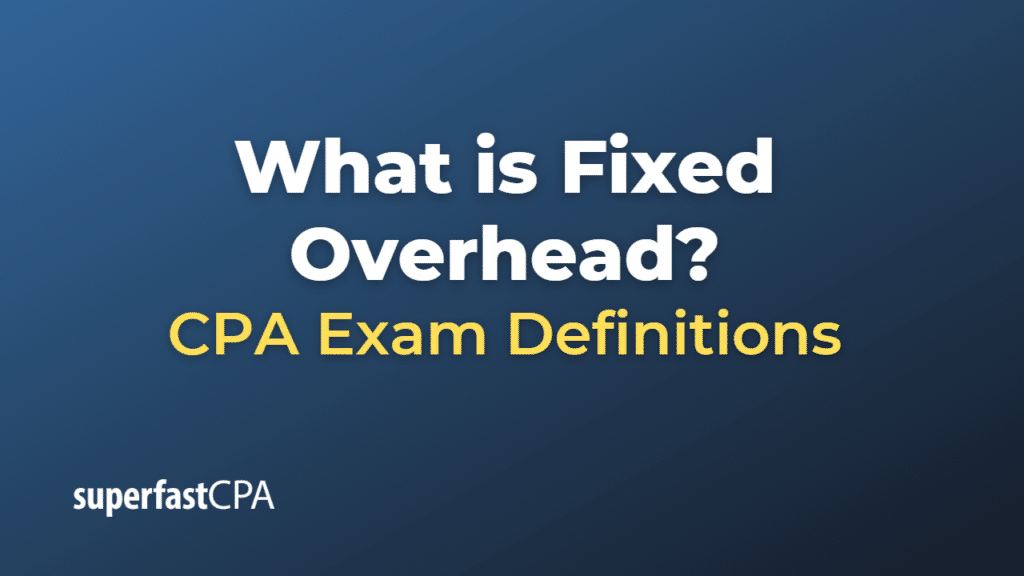Fixed Overhead
Fixed overhead is a set of costs that a business incurs regularly and that do not change in response to the volume of goods or services produced within a certain period of time. These are indirect costs, meaning they’re not tied to a specific product, project, or department. They are essential for running the business and must be paid regardless of the level of output or sales.
Examples of fixed overhead costs can include:
- Rent or Lease Payments: Regardless of output, businesses need to pay rent or mortgage on their premises.
- Insurance: Premiums for various types of insurance (like liability, property, or workers’ compensation) are typically fixed.
- Salaries: Certain staff salaries, especially for administrative or managerial positions, do not change based on output or sales.
- Utilities: Costs for utilities such as electricity, water, or internet may have a base amount that doesn’t change much with production levels.
- Depreciation and Amortization: These costs spread the purchase price of long-term assets over their useful life and are considered fixed costs.
- Property Taxes: These are typically set for the year and do not change with the level of production or sales.
In the context of manufacturing businesses, fixed overhead specifically refers to those costs that are related to the manufacturing process but are not directly tied to the production volume, such as factory rent, salaries of factory maintenance staff, and depreciation of factory equipment.
Fixed overhead costs contrast with variable overhead costs, which do change in response to the level of business activity. Together, they comprise the total overhead costs of a business. Understanding and managing these costs is essential for pricing, budgeting, and strategic decision-making processes within a business.
Example of Fixed Overhead
Let’s consider a hypothetical example of a small manufacturing company to illustrate fixed overhead costs.
For this manufacturing company, fixed overhead costs might include:
- Factory Rent: The company rents a factory for $10,000 per month.
- Salaries: The company has a plant manager and an office manager, who earn salaries of $5,000 per month each, and maintenance staff who collectively earn $3,000 per month.
- Insurance: The company pays $1,500 per month for various insurance policies, covering things like property damage and worker injuries.
- Utilities: The company has a base utility bill (including water, electricity, and internet) of $2,000 per month.
- Depreciation: The company owns manufacturing equipment that it purchased for $240,000. The equipment has an expected useful life of 10 years and a salvage value of $40,000. So, each month, the company records depreciation of $1,667 (($240,000 – $40,000) / (10 years * 12 months)).
- Property Taxes: If the company owns property, it may pay property taxes. Let’s say it pays $12,000 per year, or $1,000 per month.
Adding these costs together, the company has fixed overhead costs of $24,167 per month. These costs must be paid each month, regardless of how many units the company produces or sells. They are part of the company’s overhead, which it needs to cover through its sales in order to make a profit.
In contrast, variable overhead costs in a manufacturing environment might include indirect materials (like manufacturing supplies) or indirect labor (like overtime pay for production workers), which increase with the level of production.













